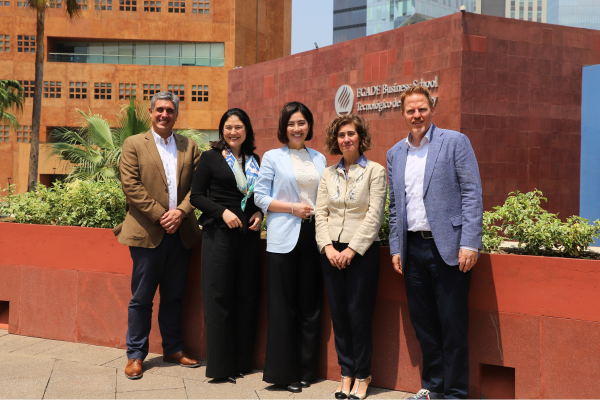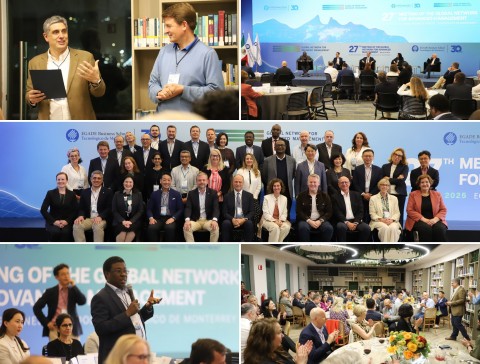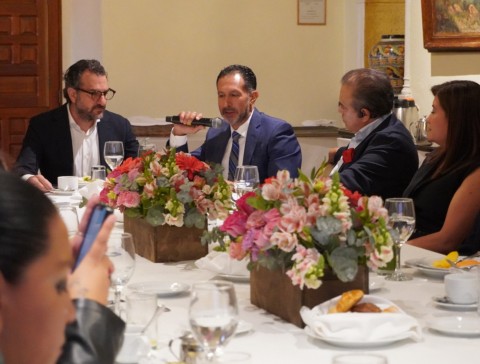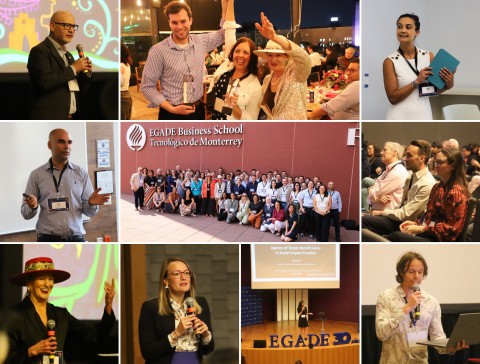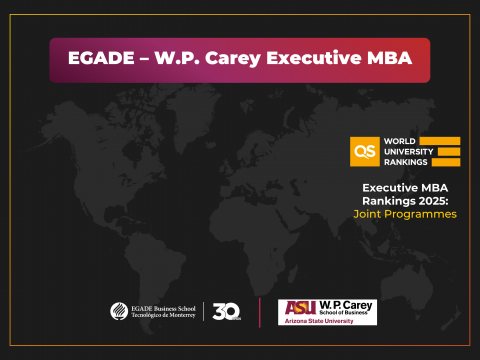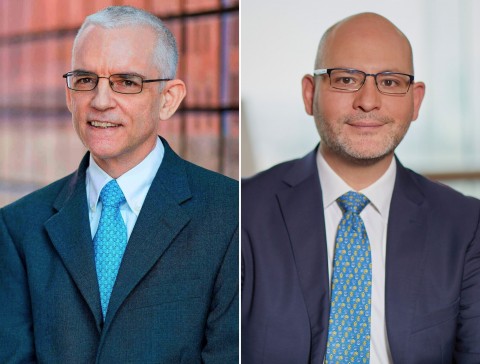EGADE Business School Strengthens Global Academic Collaboration With EGAAC
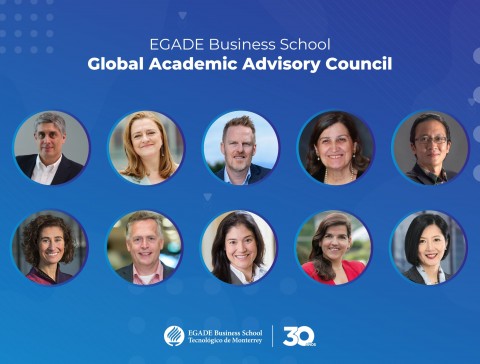
The EGADE Global Academic Advisory Council brings distinguished leaders in business education to support the school’s academic development and internationalization strategy.
By JOSÉ ÁNGEL DE LA PAZ | EGADE BUSINESS SCHOOL
EGADE Business School at Tecnológico de Monterrey is pleased to have its EGADE Global Academic Advisory Council (EGAAC), a strategic body composed of prominent academic leaders from world-class business schools.
The council is designed to support EGADE’s global academic collaboration and partnership strategy and to provide the dean and leadership team with insights, guidance, and support concerning the school’s academic development, particularly in relation to EGADE’s internationalization strategy.
The EGAAC contributes to the school’s strategic development by offering valued insights from its members in several key areas. These include global business education dynamics such as context, emerging trends, threats, and opportunities; best practices for attracting top international students and faculty; and developments in education innovation, especially around adopting disruptive technologies, including AI and AGI.
The council also fosters deeper engagement in global academic partnerships, including initiatives for faculty collaboration, student mobility, joint research, and strategic outreach.
Additionally, it facilitates peer-to-peer communication between EGADE’s leadership and their counterparts at member institutions to promote the exchange of best practices across all areas of impact.
“The EGADE Global Academic Advisory Council reflects our commitment to building bridges with the world’s top minds in business education,” said Horacio Arredondo, Dean of EGADE Business School. “We are honored to engage with academic leaders who recognize the relevance of our purpose: to rethink the future of business in order to drive sustainable development in Latin America.”
Members of the EGAAC are appointed for a three-year renewable term and were invited based on their exceptional leadership, extensive experience in business education and innovation, and prior engagement with Tecnológico de Monterrey or EGADE Business School.
EGAAC members:
- David Bach, President & Nestlé Professor of Strategy & Political Economy, IMD, Switzerland
- Isabelle Bajeux-Besnainou, Dean, Tepper School of Business, Carnegie Mellon University; Richard P. Simmons Professor of Finance
- Lourdes Casanova, Gail and Rob Cañizares Director, Emerging Markets Institute, Cornell SC Johnson College of Business
- Camino de Paz, Assistant Dean of Global Programs, Yale School of Management, Yale University
- Catherine Duggan, Director, Graduate School of Business, University of Cape Town (UCT)
- Michael Fung, Director, Institute for the Future of Education (IFE), Tecnológico de Monterrey; Board Director, SkillsFuture Singapore
- Leila Guerra, Associate Provost for Digital Lifelong Learning and Vice Dean (Education), Imperial College Business School
- Jikyeong Kang, President and Dean, Asian Institute of Management (AIM); MVP Chair in Marketing
- Wilfred Mijnhardt, Policy Director General, Rotterdam School of Management, Erasmus University; Honorary Professor at Edinburgh Business School, Heriot-Watt University
- Horacio Arredondo, Dean, EGADE Business School, Tecnológico de Monterrey
The council meets twice a year—in May and November—in a hybrid format. Between meetings, EGAAC members participate in thematic sessions with EGADE’s leadership team to share best practices in digital transformation, faculty development, and strategic outreach, further reinforcing EGADE’s position as a globally connected institution in business education.
